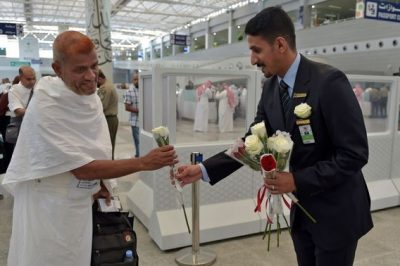Sri Lankan Muslims’ dream to perform hajj this year has been revived after the government announced that they would be allowed to perform hajj if they pay their costs in foreign currency.
The decision comes a few days after the South Asian country banned hajj this year due to the worsening economic crisis.
“At the request of the Muslim groups led by Minister [Naseer] Ahamed, we have decided to fulfil the quota of pilgrims by requesting them to pay for their Hajj package in foreign currencies, which will not affect our national economy,” Religious Affairs Minister Vidura Wickremanayake told Arab News.
“I have requested the central bank to work out the modalities of working out this pilgrimage and they would help them find an easy passage to and from Makkah this year.”
Muslims from around the world pour into Makkah every year to perform hajj, one of the five pillars of Islam.
Keeping Hajj Quota
1,585 Sri Lankans can perform Hajj with the new quota set by Saudi Arabia last month to allow 1 million foreign and domestic Muslims to travel to the holy city of Makkah.
Muslim parliamentarians and Environment Minister Naseer Ahamed, who also oversees Middle Eastern affairs, said that sending a reduced number of pilgrims this year would help the country keep its allocation.
“Since the pilgrims have been asked to pay for their package in foreign currencies, we cannot expect to make use of the full quota this year. But it’s good to take some pilgrims to keep Sri Lanka’s quota intact for next year too,” Ahamed said.
“Three years ago, we got a Hajj quota of nearly 4,000. This year, we do not want to miss this 1,585 quota for Lankan pilgrims.”
Muslims make up almost 10 percent of Sri Lanka’s population of 22 million, which is predominantly Buddhist.
Saudi government decided the number of pilgrims in each country based on the number of its Muslim population.
The Kingdom restricted hajj for two years due to the COVID-19 pandemic. It allowed only 1,000 domestic visitors in 2020 and 60,000 in 2021.


